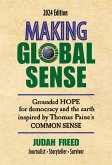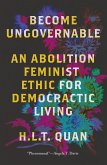Stigma is a corrosive social force by which individuals and communities throughout history have been systematically dehumanised, scapegoated and oppressed. From the literal stigmatizing (tattooing) of criminals in ancient Greece, to modern day discrimination against Muslims, refugees and the 'undeserving poor', stigma has long been a means of securing the interests of powerful elites.
In this radical reconceptualisation Tyler precisely and passionately outlines the political function of stigma as an instrument of state coercion. Through an original social and economic reframing of the history of stigma, Tyler reveals stigma as a political practice, illuminating previously forgotten histories of resistance against stigmatization, boldly arguing that these histories provide invaluable insights for understanding the rise of authoritarian forms of government today.
In this radical reconceptualisation Tyler precisely and passionately outlines the political function of stigma as an instrument of state coercion. Through an original social and economic reframing of the history of stigma, Tyler reveals stigma as a political practice, illuminating previously forgotten histories of resistance against stigmatization, boldly arguing that these histories provide invaluable insights for understanding the rise of authoritarian forms of government today.
Historically, when people were physically branded and maimed, it was clear who was creating stigma and why. While such practices are rare today, Tyler (Lancaster Univ., UK) argues that powerful, hidden processes in developed modern societies still create stigma . Chapters include an analysis of race and Black power in the US, the European refugee crisis, poverty within austerity Britain (based partly on her work with a local Poverty Truth Commission), and autobiographical insights from her working-class upbringing . [The] analysis of oppression in other places can provide a more acceptable way to explore dynamics that also apply to the US. Summing Up: Recommended. Lower-division undergraduates through faculty. CHOICE








